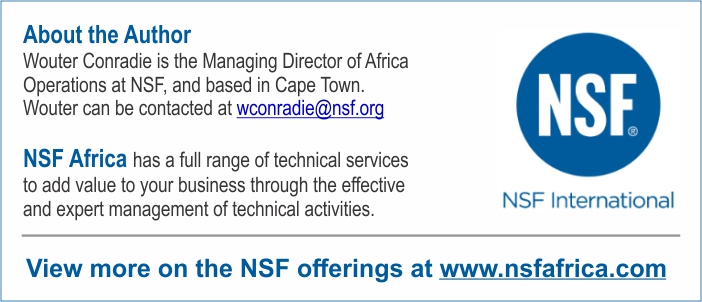Although internal audits are a mandatory requirement of all the food safety management system standards such as FSSC 22000, BRC and even national retail standards, this management tool should be implemented to support corporate governance activities and not just ticking a box for food safety expectations.
And this is why as a CEO your role in the food safety internal audit is crucial. There are a number of reasons for this and to ensure you are receiving the right information to manage operational risks, you need to play this role.
You only have two eyes and two ears
Even the best CEO in the world is not a superhuman. This means you are limited to being in one place at one time. But an effective internal audit team can assist you. Their eyes and ears can be collecting information, evaluating compliance and effectiveness of systems for you. You need them to ensure the food safety management system you have invested in, is actually working all day every day.
Your people know where they hide their problems
The unfortunate reality is that there is the inevitable clean up for an external audit of your operations. You should obviously not condone these actions as this can lead you and your EXCO making the wrong decisions as the evaluation you receive after an external audit maynot be a true reflection of the actual implementation activities. While I understand the business need to maintain certification, if there are weaknesses in your food safety management system, you need to know about them so that your reputation is not affected. Your internal audits should therefore give you a far more accurate reflection of the health status of the system. Insist on a rigorous evaluation regardless of how painful. And don’t shoot the messengers. They are just doing the job you require.
Don’t compromise on competence
In order to conduct an effective audit, the team should be properly trained. Although you can use an external company such as NSF to assist you, you should still have a team of competent internal auditors. These individuals should have enough organisational exposure to understand the business implications of food safety and have the authority to discuss discrepancies and improvement plans with the relevant leaders. Often this task is delegated to junior staff members who simply don’t have enough experience to interrogate business practices and suggest improvements. Make sure the team know that you are appointing them - even do this in writing so it is clear that this is a top management tool.
Demand comprehensive assessment and reporting
You don’t have time to review the daily hygiene audits that may be done. So you need a consolidated comprehensive report of the status of implementation of your food safety management system. You should define the outputs you require to be able to assess the risks. The team should identify the major nonconformities and opportunities for improvement. Bear in mind that the new version of ISO 22000:2018 makes food safety part of the strategic drivers of an organization. This means your internal audit should report on the effectiveness of strategy execution at operational level. Be prepared to give input to the objectives and frequency of the audits and the required reporting.
Praise the positive and assign accountability
Audits should be balanced in their feedback and so you should see the areas that are conforming to the company requirements and then those that are not. Be careful not to focus on the negatives only. You should be encouraging a positive food safety culture. To do this, recognition of a job well done will go much further than harping on the negatives only. Ensure your tone supports the winning team. Nonconformances are opportunities for improvement. Assign the accountable person and insist on prompt and effective corrective action. If there is the wrong reaction to nonconformances, you will trigger a culture of dishonesty as your staff will hide their problems rather than owning up so they can be fixed.
Small actions like attending the opening and closing meeting, sending out a thank you email to the audit team and rewarding improvement (even if just allowing the most improved team to park in the executive parking for a week) will go a long way to ensuring your staff understand that internal audits are a critical measure to you and to the company. A not negotiable activity where we tell the truth, the whole truth and nothing but the truth - to ensure food safety is a daily activity.


Contact Wouter today to chat about the value of business audits





